The holiday hotspots where fed-up locals want Brits to 'go home'
Watch: Thousands protest in Majorca against mass tourism
Thousands of people have taken to the streets of Mallorca in a huge anti-tourism protest.
A crowd of about 20,000 marched through the streets of Palma on one of Spain's Balearic Islands on Sunday to demonstrate against "over-tourism".
It is the latest sign of backlash against visitors, many of whom come from the UK, with protesters carrying a banner that read: "Your paradise is our nightmare".
It follows previous protests at a number of Spanish tourist sites, as locals say they are angry at the impact mass tourism is having on their daily lives.
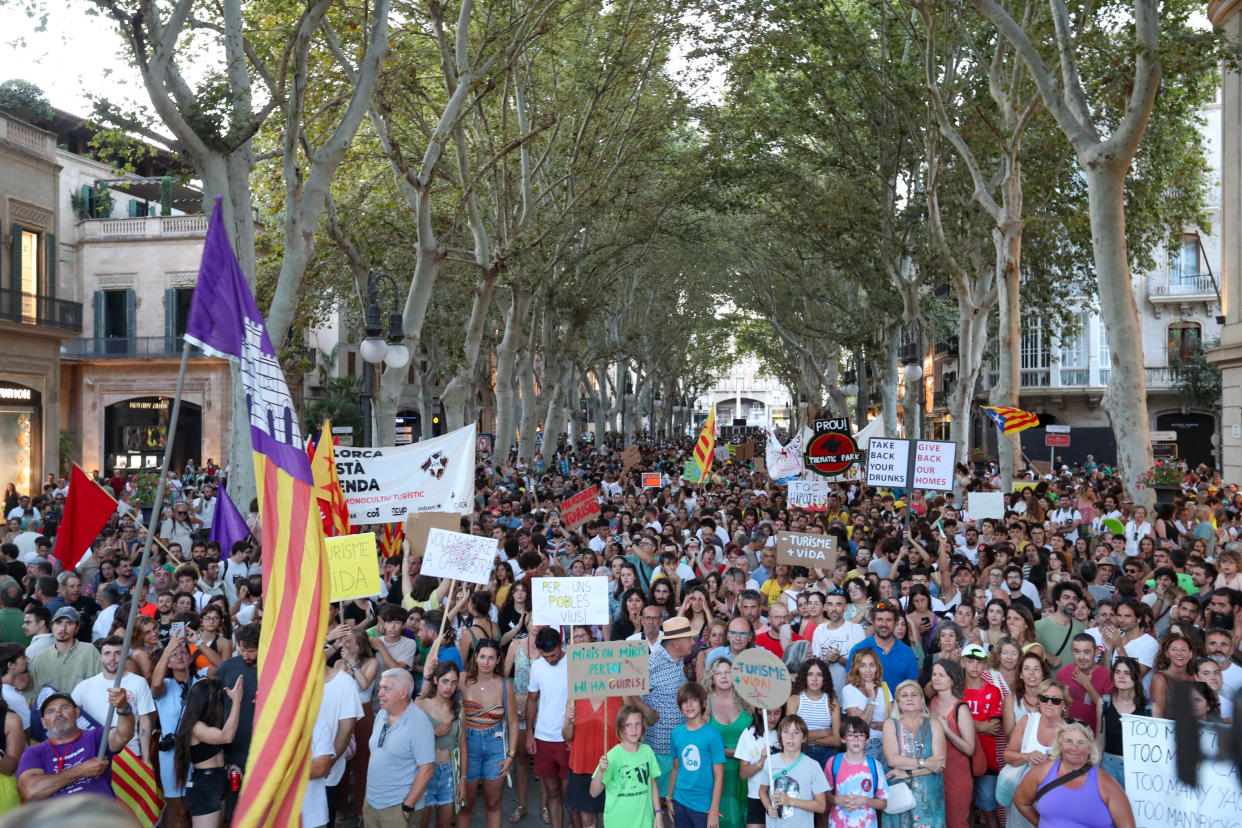
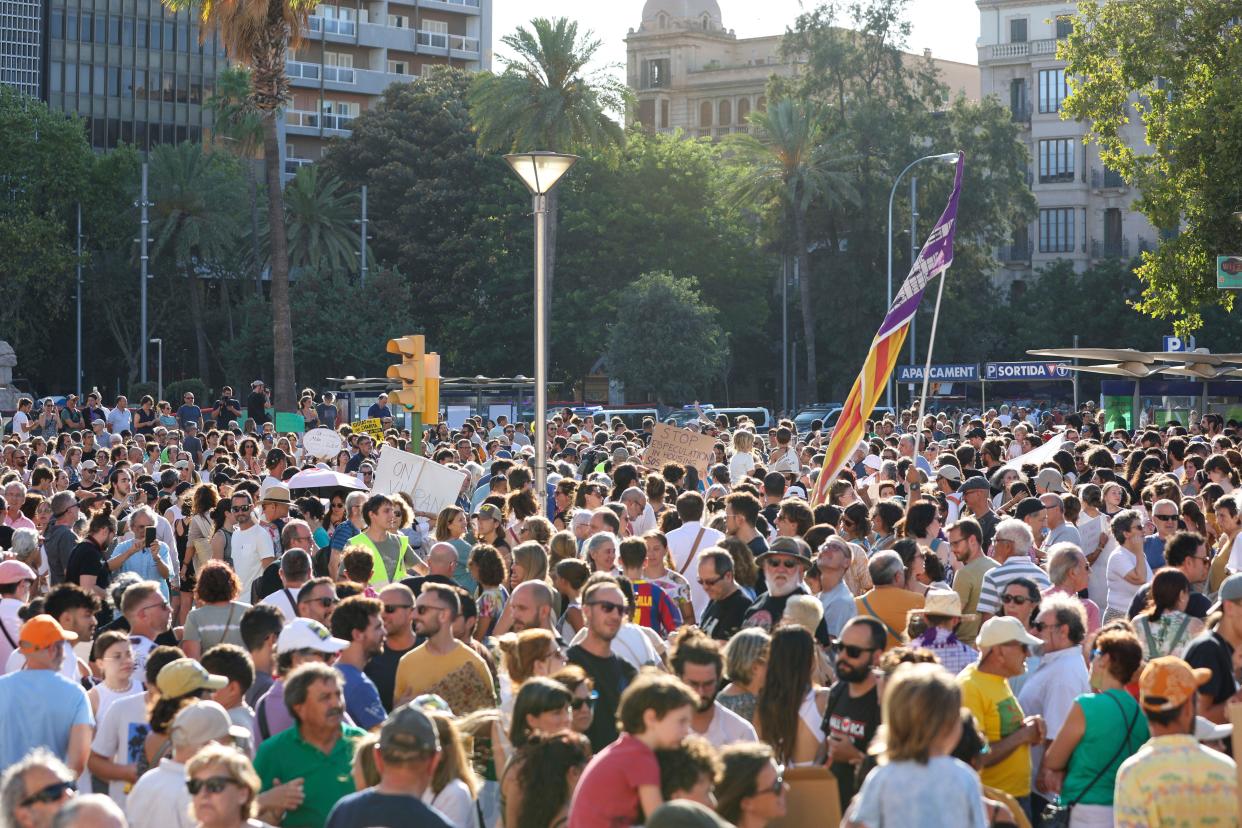
They claim visitors drive up housing costs and lead to residents being unable to afford to live in city centres.
Pere Joan Femenia, of Menys Turisme, Mas Vida (Less Tourism, More Life), which organised Sunday's protest in Mallorca, said: "Mass tourism is making it difficult for local people who cannot afford to live on their own island because tourist flats push up prices.
"Tourists fill up beaches and put a strain on public services in the summer. We want to cut mass tourism and to ban non-residents from buying houses which are just used for a few months a year or for speculation."
So-called over-tourism has infuriated locals in tourist resorts, with claims that visitors are damaging nature spots and overcrowding popular areas. This had led some areas to demand Brits to go home.
Here are some of those spots where Britons are being told to stay away…
Barcelona, Spain
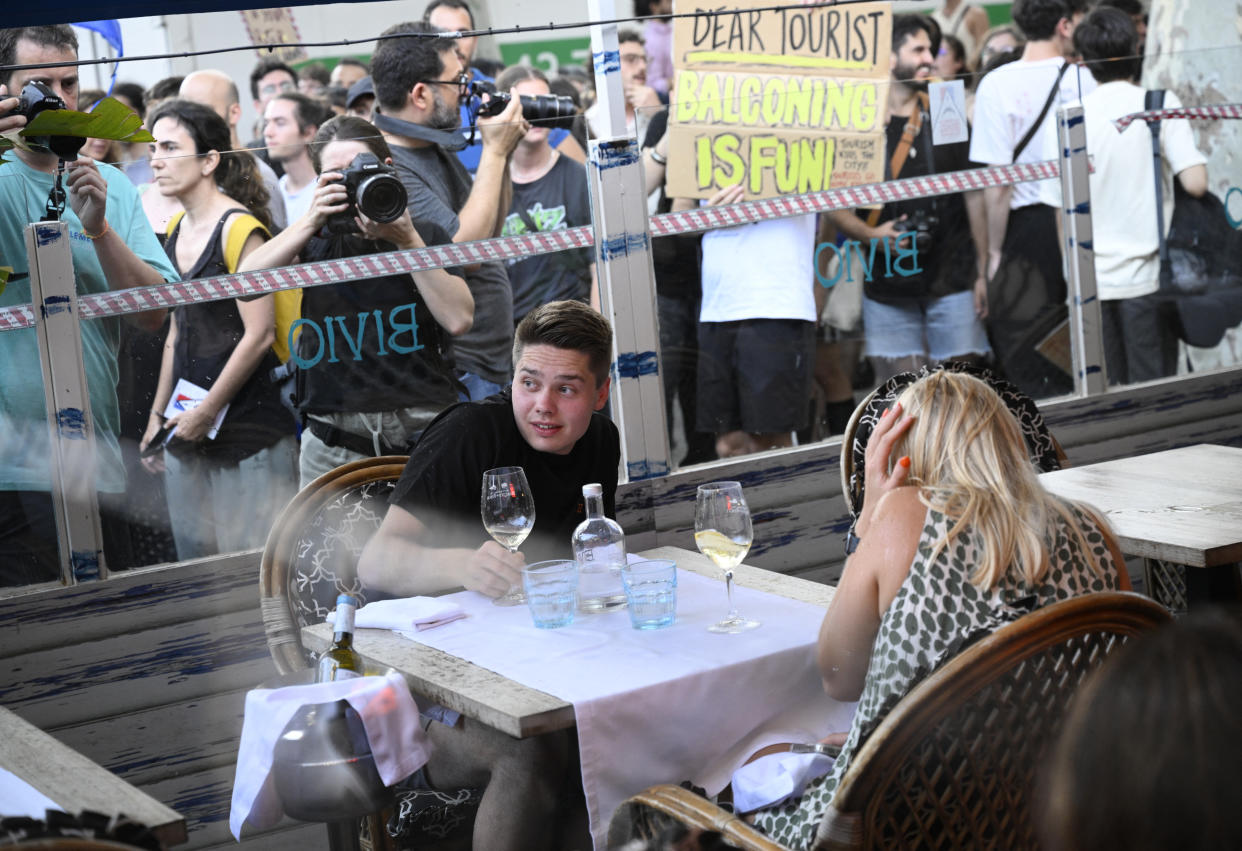
Diners in Barcelona were sprayed with water pistols earlier in July during a protest against mass tourism in the city.
As well as remonstrating with diners who the protesters believed were tourists, hotel guests were also stopped in their tracks as entrances were taped up.
Barcelona, a popular destination for Britons, received more than 12 million tourists in 2023 and expects more over the course of this year. Thousands are said to have taken part in the protest.
Tenerife, Spain

In the Canary Islands, graffiti has started emerging in Tenerife declaring “Canaries have a limit”. The slogan was written across a road leading up to the Teide volcano.
Other signs reading "closed to tourists" have been seen around beaches.
The island council’s vice-president Lope Afonso described the graffiti as “vandalism” in an angry post on X. But his post was met with a backlash, with some accusing him of defending “attacks on natural spaces your British friends have done”.
Others accused tourists of parking “wherever they want”, straying off designated paths and camping and cooking in the Teide National Park.
As a result of issues in the park, Tenerife Council president Rosa Davila proposed a "tourist tax" that would see tourists charged to visit protected natural spaces. Carlos Tarife, deputy mayor for Tenerife capital Santa Cruz, has also urged British tourists to go elsewhere for cheap all-inclusive breaks.
Amsterdam, Netherlands
Last year, officials in Amsterdam started a campaign that literally told British men to “stay away” if they planned to “go wild” on a visit to the capital.
A marketing campaign, promoted by Amsterdam’s mayor, targeted British men aged between 18 and 35 who were using search terms like “pub crawl Amsterdam” and “stag party Amsterdam” on search engines.
Targeted adverts showed people being arrested and jailed for antisocial behaviour, while another showed tourists taken to hospital after taking drugs in the city.

Officials hoped the adverts would dissuade “potential nuisance-causing visitors from the Netherlands”.
Deputy mayor Sofyan Mbarki added in a statement: “Visitors will remain welcome, but not if they misbehave and cause nuisance. In that case we as a city will say: rather not, stay away.”
Paros, Greece
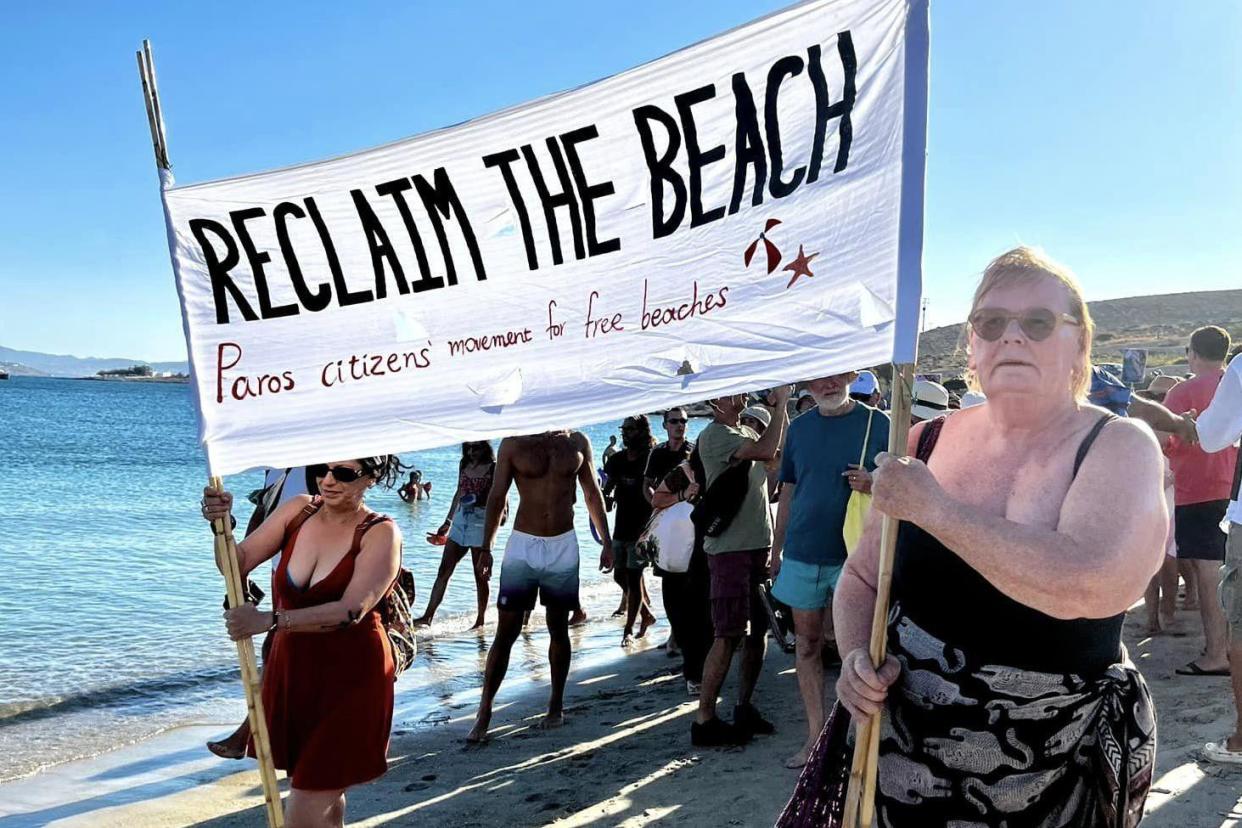
A so-called "Towel Movement" emerged last year in Paros, Greece, by people fed up at not being able to find a free space on beaches. They said illegal operators were selling spots to British tourists who draped their towels over loungers to secure the spot.
The movement popped up in other parts of Greece as some 4.5 million British tourists flew there in 2022 as pandemic restrictions were lifted. The Save Paros Beaches group say illegal operators were charging €60 (£51.32) for tourists to rent an umbrella and two sunbeds for the day.
Campaigners argued beaches were for public use and should be enjoyed without payment. They said in a statement: “We claim our right to public space, our right to enjoy our beaches that are encroached upon by greedy, socially irresponsible businessmen who occupy beaches in their entirety or exceed their limits by up to 100 times the area they legally lease.”
Kostis Hatzidakis, Greece’s minister of national economy and finance, ordered police to increase patrols in popular areas. He said: “We will not give up the beaches to anyone.”
Athens, Greece
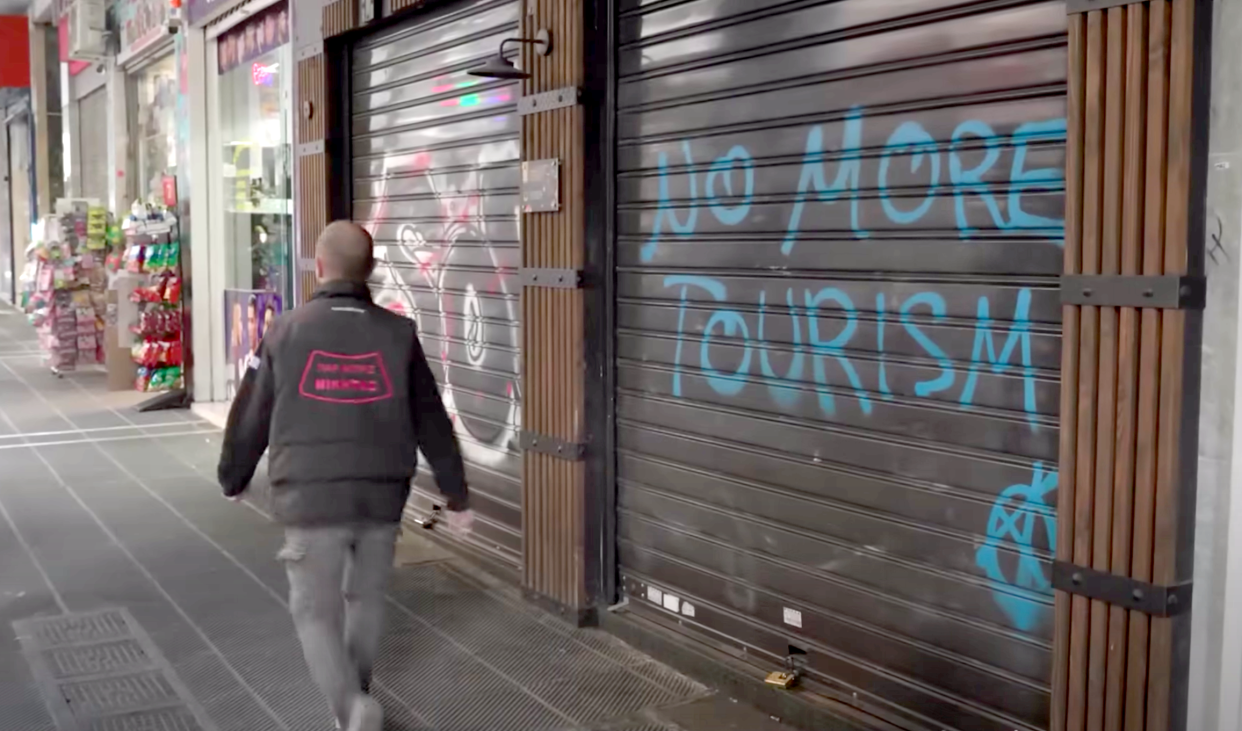
The Greek capital of Athens has seen a growing movement of residents furious with the 6.4 million tourists, many of whom are Britons, visiting the city every year. They say locals are pushed out of the area by foreigners buying up properties for themselves.
Properties are also being bought up by real estate companies who turn them into co-working spaces and Airbnb properties. Anna Theodorakis told France24 she was forced out of the Metaxourgio area. She said the number of Airbnbs was “wiping out the traditional places” and complained she felt like “a foreigner in my own country”.
Anti-tourist graffiti has been seen in Athens recently, while protests saw people chant: “They are taking our houses while they live in the Maldives.”
Como, Italy
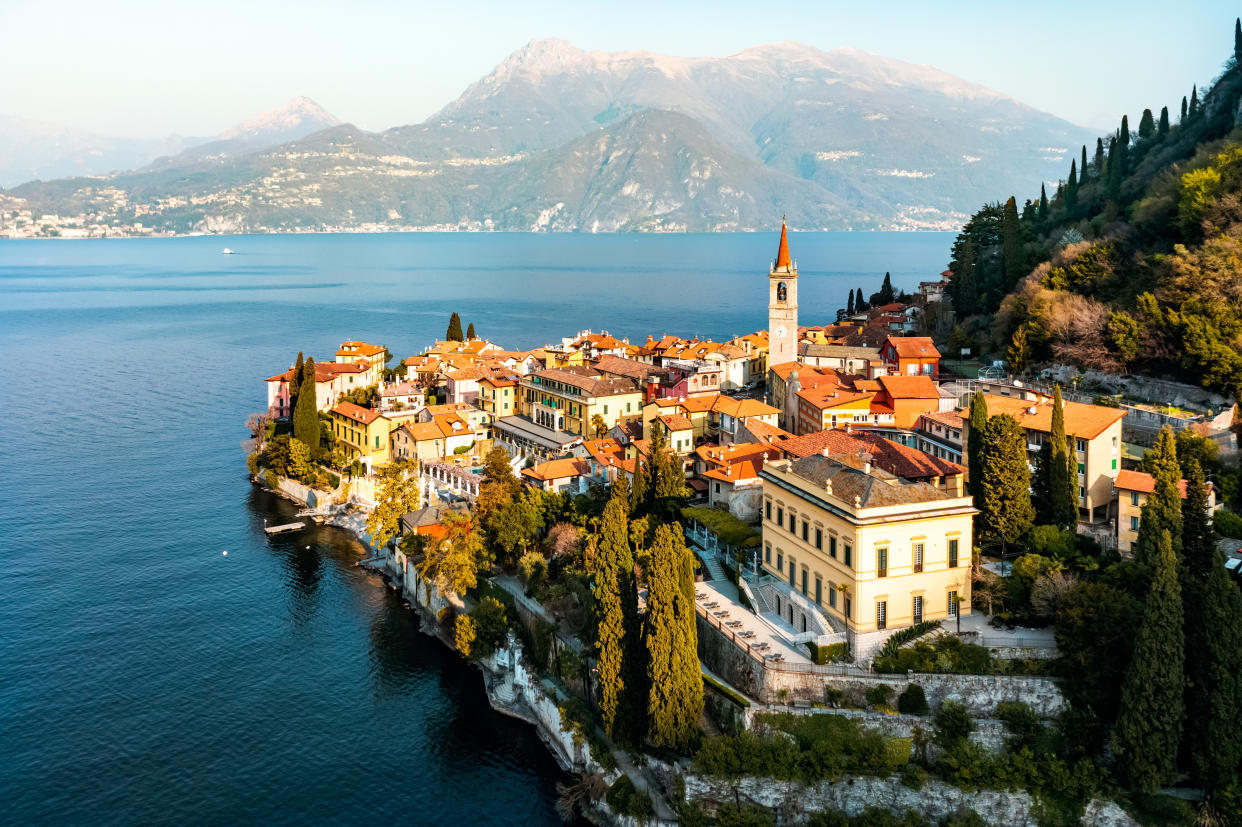
Britons who visit Lake Como in Italy, one of the country’s most popular tourist destinations, may soon be hit by a tourist tax in an attempt to combat over-tourism.
Como’s mayor Alessandro Rapinese said recently it was “difficult to be mayor when you are fighting tourism”.
He told The Times: “We are already discussing the idea [of a tourist tax]. Revolutions begin with concrete measures and we are ready for this long journey.”
Malaga, Spain
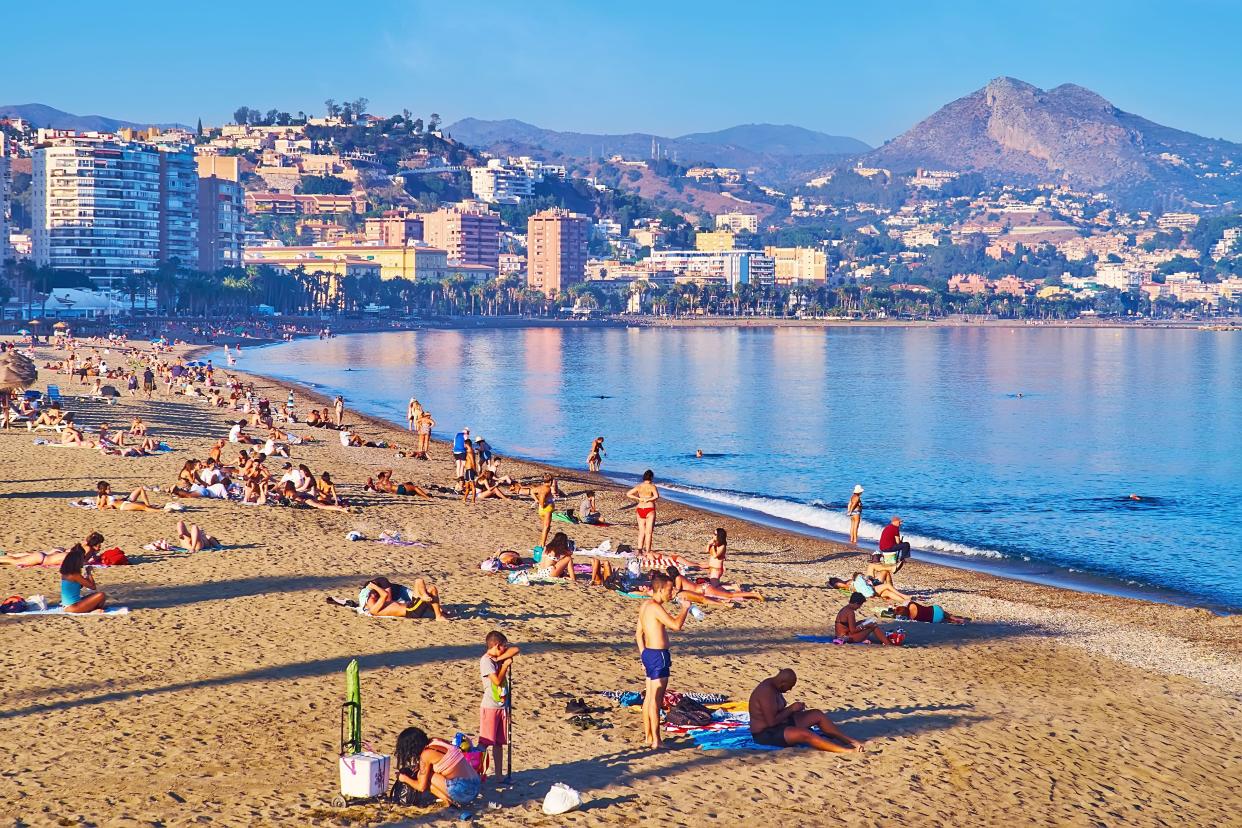
Malaga has long been a popular destination for Britons visiting Spain but it seems the years of tourism has led to resentment from locals.
This resentment has resulted in stickers being plastered on walls and doors across the city, telling visitors to “go f****** home”. Other stickers feature messages including “this used to be my home” and that the area was “stinking of tourist”.
Bar owner Dani Drunko is the man behind the “sticker initiative” that takes aim at visitors. He told local paper Diario Sur he was compelled to act after being “kicked out” of the home he lived in for a decade. He claimed his landlord refused to let him stay as he wanted to turn it into a short-term rental property for visitors.
Hallstatt, Austria
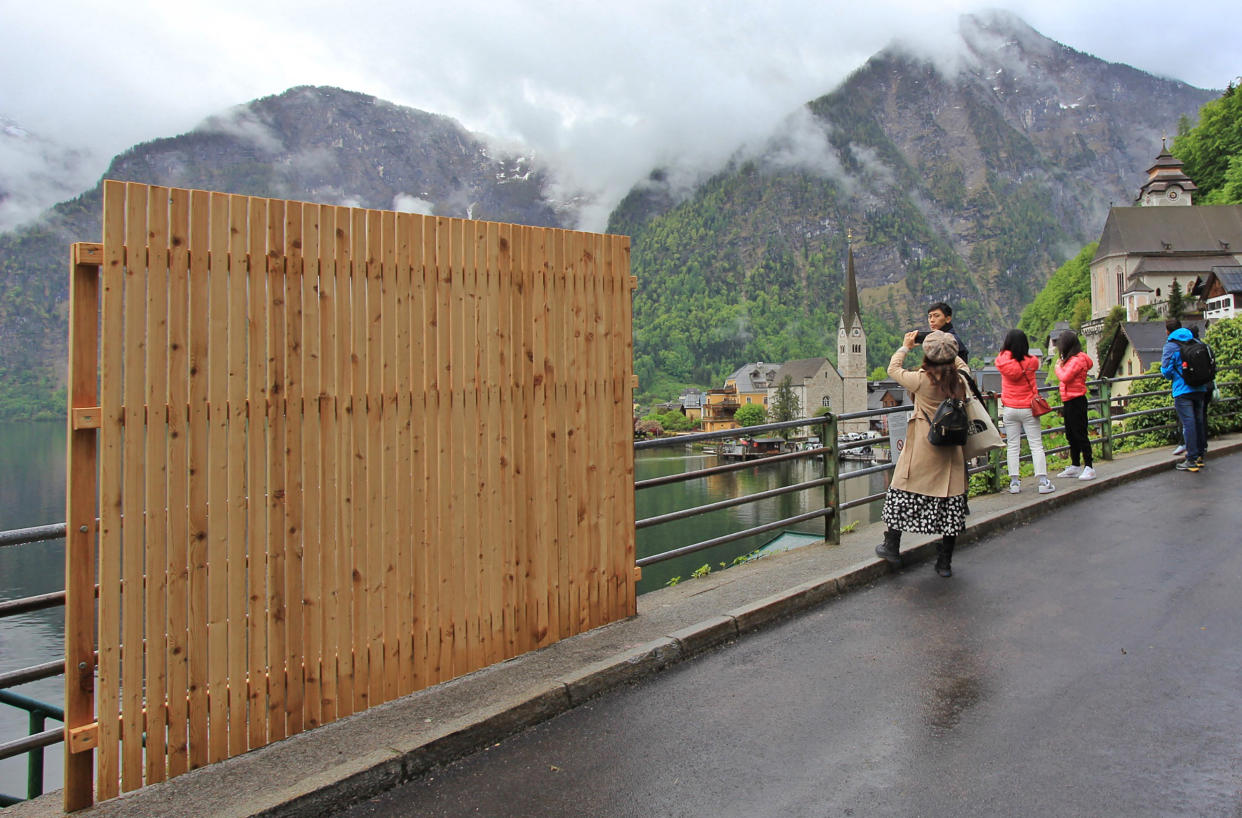
The Austrian village of Hallstatt provides a stunning spot for tourists to take photos and selfies.
However, residents seem to have grown tired of the one million tourists that visit the destination every year.
In 2023, that frustration boiled over into a small-scale rebellion - and a fence was built to stop people from taking selfies and from making too much noise. It was later removed following a backlash.


